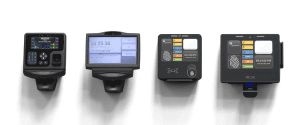HCM market value is on the rise, fueled by rapid technological advancements and a shift to a distributed workforce.
More and more organizations are recognizing the benefits of using human capital management (HCM) technology to streamline their HR, payroll, and recruitment processes.
With the widespread adoption of HCM solutions, the market is poised for significant growth in the coming years. While estimates vary on the exact size of the market, most recent forecasts point to billions of dollars in additional value over the next decade, with the US and North America leading the way.
According to a Technavio report published in May 2022, the global HCM market is expected to grow by $12.16 billion between 2020 and 2025. The market saw year-on-year growth of 9.52% in 2021, and this momentum is expected to continue, with a compound annual growth rate (CAGR) of 10.57% projected during the forecast period. North America is projected to hold the largest market share, accounting for approximately 34% of total market growth.
A longer-term forecast by Fortune Business Insights is even more optimistic. The report predicts that the global HCM market size will reach $25.53 billion by 2029, with a CAGR of 9.1%.
The impact of COVID-19 has been a major driver of HCM demand, as businesses across all regions have experienced higher-than-anticipated demand for HCM solutions compared to pre-pandemic levels.
North America has been particularly active, accounting for nearly half the market for the past two years, with an estimated value of over $10 billion. This trend is expected to continue, as the region is poised to hold a dominant position in the global HCM market.
Advances in technology have played a significant role in the growth of HCM, with businesses increasingly adopting software that incorporates artificial intelligence (AI) and robotic process automation (RPA) capabilities.
In the US, the competition for talent is fierce, and hiring managers are leveraging AI and machine learning tools built into HCM software to sift through hundreds of resumes and identify the most qualified candidates, significantly reducing administrative time.
RPA is also being widely adopted as part of HCM strategies. RPA effectively digitizes manual, repetitive tasks such as payroll processing, data entry, and remittance, freeing up HR teams to focus on higher-level strategic initiatives.
Many businesses are also turning to cloud-based HCM solutions to improve efficiency, enhance productivity, and reduce costs. Cloud-based solutions allow companies with multiple locations to seamlessly collaborate on recruitment, talent acquisition, employee relations, and other HR functions such as payroll and remittance, providing a centralized platform for managing HCM tasks effectively.
This is a significant improvement over traditional methods, where sensitive HCM data was often stored locally on a limited number of machines.
The pandemic has also accelerated the adoption of HCM solutions, as businesses have had to adapt to hybrid and remote work arrangements. Cloud-based HCM solutions have enabled HR and personnel teams to handle onboarding, employee communications, and payroll functions effectively, even with distributed workforces.
HCM solutions have proven invaluable in helping businesses maintain operations and stay connected with their employees during a time of unprecedented change. As a result, businesses are increasingly embracing these solutions, with Gartner predicting that most organizations will retain the majority of solutions implemented to support new ways of working.
If you’re looking to streamline and manage your HR processes with cutting-edge HCM solutions, contact GT Clocks today.






